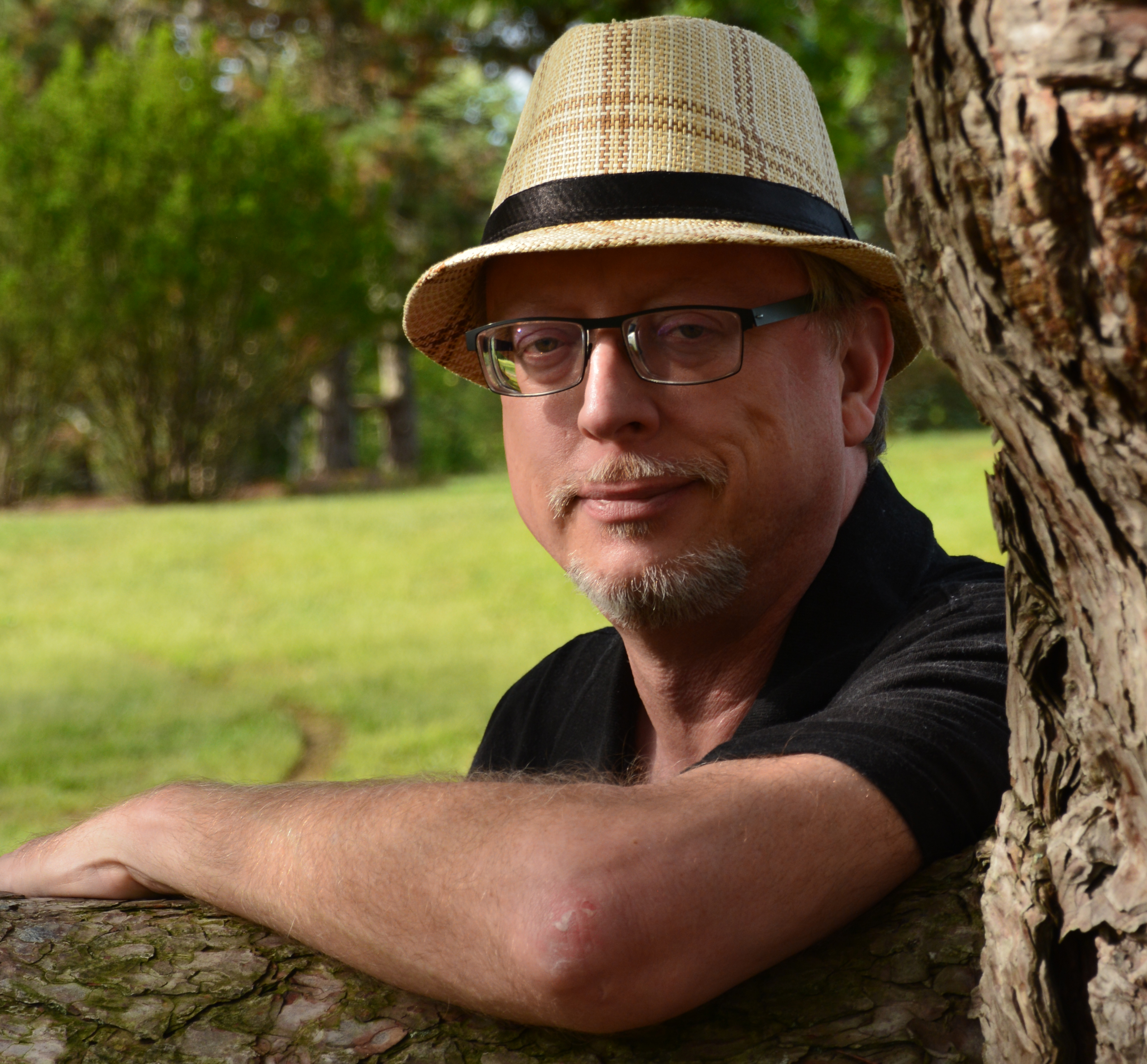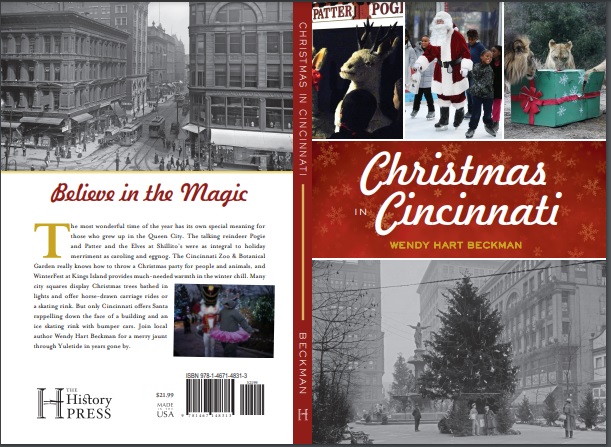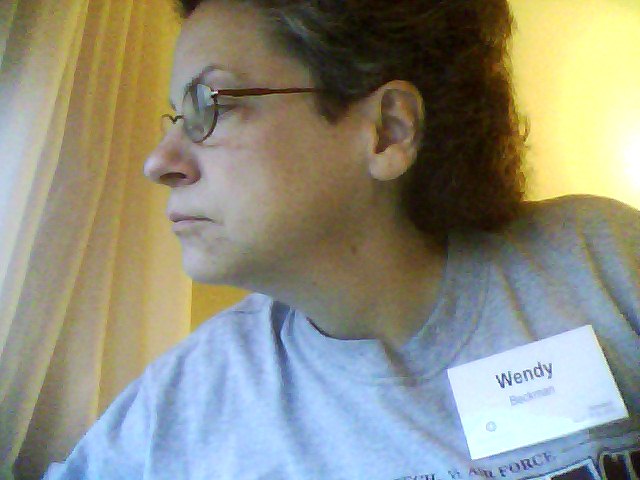Tim Waggoner will be enlightening us at the second annual Retreat to the Springs! Tim has published close to forty novels and three collections of short stories. He writes original dark fantasy and horror, as well as media tie-ins, and his articles on writing have appeared in numerous publications. In 2017 he received the Bram Stoker Award for Superior Achievement in Long Fiction. He’s been a finalist for the Shirley Jackson Award and the Scribe Award. His fiction has also received numerous Honorable Mentions in volumes of Best Horror of the Year. He’s also a full-time tenured professor who teaches creative writing and composition at Sinclair College in Dayton, Ohio. He took time to talk about his life as a writer.
original dark fantasy and horror, as well as media tie-ins, and his articles on writing have appeared in numerous publications. In 2017 he received the Bram Stoker Award for Superior Achievement in Long Fiction. He’s been a finalist for the Shirley Jackson Award and the Scribe Award. His fiction has also received numerous Honorable Mentions in volumes of Best Horror of the Year. He’s also a full-time tenured professor who teaches creative writing and composition at Sinclair College in Dayton, Ohio. He took time to talk about his life as a writer.
Q: What made you choose your genre(s)?
Tim: I’m not sure I did choose them. I’ve been interested in horror, fantasy, and science fiction since I was a small child. I was fascinated by the idea that dinosaurs were real creatures who lived and walked on Earth at one time — maybe even right where I lived. And my mom and dad let me watch horror and SF movies on TV (as long as they weren’t too scary). My dad liked to read SF/F/H too, and as I got older, he’d let me read his books when he was finished. I got into reading comics when I was in seventh grade. This was back in the late seventies, and the big wave of 80’s sci-fi and horror movies was just around the corner. By the time it hit, I could drive, and I saw as many of these now-classic films in the theater as I could. Growing up with all these influences, it’s no wonder I write the kind of stuff I do.
Q: What do you consider to be the first meaningful things you wrote? (For example, I had a poem published in a national magazine when I was 10. I then wrote my autobiography when I was 12, but my mother said no one would buy it until I had done something meaningful. I then wrote a “Nancy Drew” book the next year. Even though I’ve published nine books, those three things are what stick in my mind.)
Tim: When I was sixteen, I took a creative writing class in high school. There, I wrote a story called “The Last Christmas Present” about the last surviving Christmas elf who is trying to continue delivering presents on his own and having great difficulty managing it. One Christmas eve, the elf sees a young boy about to be hit by a car, and he pushes the boy out of the way, saving his life. Unfortunately, the elf is hit and dies from his injuries, his sacrifice being the last present he’ll ever give. This was the first story where I consciously tried to focus on an emotional core, and I realized the difference it made in my writing. The teacher — Mrs. Vagedes — read the story aloud to the class. She nominated me for writer of the month (an honor I didn’t even know my high school offered), and I was interviewed by a local paper, which printed the story alongside my interview. So “The Last Christmas Present” was my first official publication, too.
Q: Is there anything you wish you had not written?
Tim: My first published novel was a work-for-hire piece of erotica called Dying for It. It was about husband and wife private detectives who had trouble keeping their hands off each other when they’re working. I enjoyed writing the book, and it appeared under my own name. I still list it in my bibliography. But once it came out, I was no longer eligible for a Bram Stoker Award for Best First Novel (an award in the horror genre). My next published novel was a horror story, The Harmony Society, and I think I might have had a shot at the award if I hadn’t written Dying for It. Dying for It came out in 2001, and it would be sixteen more years before I finally won a Bram Stoker Award (this one for a novella called The Winter Box). But this is such a mild regret. As I said earlier, I was happy with Dying for It — and I still am.
Q: Do you read your books after they’re published?
Tim: Nope. I don’t read the anthologies or magazines my stories are printed in, either. In the movie The Gumball Rally, which is about a cross-country road race — Raul Julia plays a character who, just before the race begins, breaks off his car’s rearview mirror and tosses it in the back seat. He says, “The first rule of Italian driving: What’s behind me is not important.” I feel it’s better to focus on what I’m working on now, and what I’m going to be working on next, rather than stuff I’ve already had published. Every once in a great while, I pick up a book and read a few lines. I never remember writing them, and they always strike me as much better written than what I’m capable of producing now. This reminds me why I shouldn’t re-read my own books!
Q: How do you feel about self-publishing? It has lost a lot of the stigma of “vanity” publishing.
Tim: I believe you’re right about self-publishing no longer being viewed as a lesser form of publication — for the most part. What concerns me about it is that if writers can publish their work so easily, what incentive do they have to improve their craft? How do they even know their craft needs improvement? In many ways, self-publishing is like making YouTube videos. People can make a video where they sing, perform on a musical instrument, perform a comedy skit, etc. It’s a wonderful form of self-expression, but how many of these performances would we consider to be of professional quality? How many would be pay to see? I’ve no doubt there are self-published novels as good as anything that’s traditionally published. But traditional publishers vouch for the books they produce, giving readers confidence that these books are at least up to a certain standard. There’s no such assurance with self-published work. On the other hand, self-publishing is a great avenue for works that don’t easily fit into a marketing category whether because of content, length, etc. But it’s the instant gratification aspect for writers that worries me about self-publishing. Over the last few years, I’ve heard student writers say variations on, “I don’t care if my book isn’t good enough to be traditionally published. I’ll just self-publish it.” As a teacher, I wish I knew what to do to change that attitude.
Q: From when you first started seriously pitching your first book, how long did it take to be picked up?
Tim: As I said earlier, my first published book was Dying for It. I’d once collaborated with the editor on a short story, and he contacted me and asked me to pitch some ideas for the erotica publisher he was working for. I pitched a few, he liked one, gave me a contract, and I started writing it. It didn’t take long for me to get the contract. I was in the process of developing a second novel for the editor — this time an erotic horror story — when the company folded. I’ve since written and published over forty novels, and most of those have been sold on a pitch or an outline, and only then do I actually write the book. It’s been close to twenty years since I’ve written a book without having a contract in place first.
Q: What is your writing routine? Do you have one?
Tim: I teach college composition and creative writing in my day job, so I write when I’m not teaching. I tend to start slow on a book. I work from an outline, and I produce maybe twenty pages a week, sometimes more, sometimes less depending on if I have papers to grade that week. Then when I get past the halfway point on a book, it’s like coming down a hill on a roller coaster. I pick up speed, writing every available moment I can find until the book is finally finished. Once I have an outline in place, it usually takes me about three to four months to write a book this way.
Q: If you didn’t write in your genre, what would you be writing?
Tim: Mysteries, maybe. I enjoy series detective fiction, and I think it would be a lot of fun to develop a sleuth I could tell many stories about. I might write thrillers. The thriller is a close cousin to both mystery and horror, so it might scratch both of those itches for me.
Q: What was your harshest rejection? What was your best rejection?
Tim: I don’t recall ever receiving a rejection that I considered too harsh. I did once receive an email from someone I didn’t know, written in all lowercase letters, no punctuation, that said you write badly. My best rejection came from an editor at a German publisher which prints translations of many English-speaking writers’ horror novels. When I inquired about the possibility of their publishing translations of my novels, the editor wrote back apologizing, saying my work for too good for them to publish.
Q: What did you do when your very first book arrived? (I opened my first book and smelled it.)
Tim: I can’t remember. I’m sure I ran my fingers across the cover, held it in my hand to feel the weight, opened it to the title page to see my name printed there, opened it to the middle to see what the text looked like, and of course smelled it. Aren’t these things all writers do?
Q: Where do you think your genre is going? What are the changes you’ve seen?
Tim: Horror is poised for a new renaissance, thanks to the recent spate of arthouse horror films, literary horror novels, and popular original films and series that debut on streaming media. Major publishers stopped producing horror for the most part after the horror boom of the 1980’s fizzled out in the early 90’s. The small press stepped in to fill the gap, and now horror has a strong, thriving small-press scene. But major publishers are once again establishing horror lines, and we should start seeing a much stronger presence of horror fiction in the mass market. It’s a great time to be a horror writer!
Q: Do you ever think back on your first book and wish you’d done something differently?
Tim: Never.
Q: Do you recommend getting an agent? How many agents have you had?
Tim: I’m currently on my third agent. I got my first one when I was twenty-six. I’m fifty-five now. If someone writes novels and wants to be traditionally published in mass market, an agent is a must. Most larger publishing houses won’t look at a book unless it’s represented by an agent. But if you want to publish with the small press or self-publish, an agent isn’t necessary. I have novelist friends who don’t use agents, who prefer to find their own deals and negotiate their own contracts. But unless you know what you’re doing when it comes to the business of publishing, and you’re confident you can negotiate aggressively, I think you’re better off with a good agent. I’d rather write than deal with business stuff, so I prefer working with an agent.
Q: Anything else you’d like to add?
Tim: Not that I can think of.
Retreat to the Springs! takes place Aug. 2 to 4, 2019, in Yellow Springs, Ohio. Besides Tim Waggoner, we will also have Maddie James and Jeffrey Marks on faculty.
For more information:
August 2–4, 2019, “Focus on Fiction” Details
Schedule
Q&A with Maddie James
Q&A with Jeffrey Marks
Register by July 25, 2019: To keep our intimate setting and personal attention, the workshop is limited to 25 people.
Location: John Bryan Community Center
100 Dayton St.
Yellow Springs, Ohio 45387





 So if your significant other asks why you’re spending so much time playing solitaire on the computer, don’t tell him or her that it is wishful thinking. Just say you’re writing.
So if your significant other asks why you’re spending so much time playing solitaire on the computer, don’t tell him or her that it is wishful thinking. Just say you’re writing.

 original dark fantasy and horror, as well as media tie-ins, and his articles on writing have appeared in numerous publications. In 2017 he received the Bram Stoker Award for Superior Achievement in Long Fiction. He’s been a finalist for the Shirley Jackson Award and the Scribe Award. His fiction has also received numerous Honorable Mentions in volumes of Best Horror of the Year. He’s also a full-time tenured professor who teaches creative writing and composition at Sinclair College in Dayton, Ohio. He took time to talk about his life as a writer.
original dark fantasy and horror, as well as media tie-ins, and his articles on writing have appeared in numerous publications. In 2017 he received the Bram Stoker Award for Superior Achievement in Long Fiction. He’s been a finalist for the Shirley Jackson Award and the Scribe Award. His fiction has also received numerous Honorable Mentions in volumes of Best Horror of the Year. He’s also a full-time tenured professor who teaches creative writing and composition at Sinclair College in Dayton, Ohio. He took time to talk about his life as a writer.